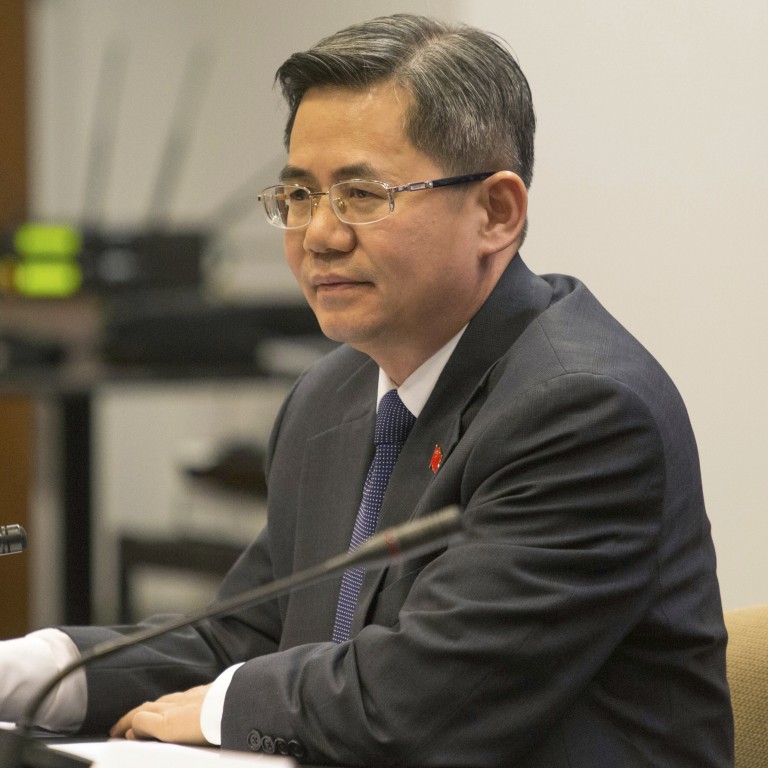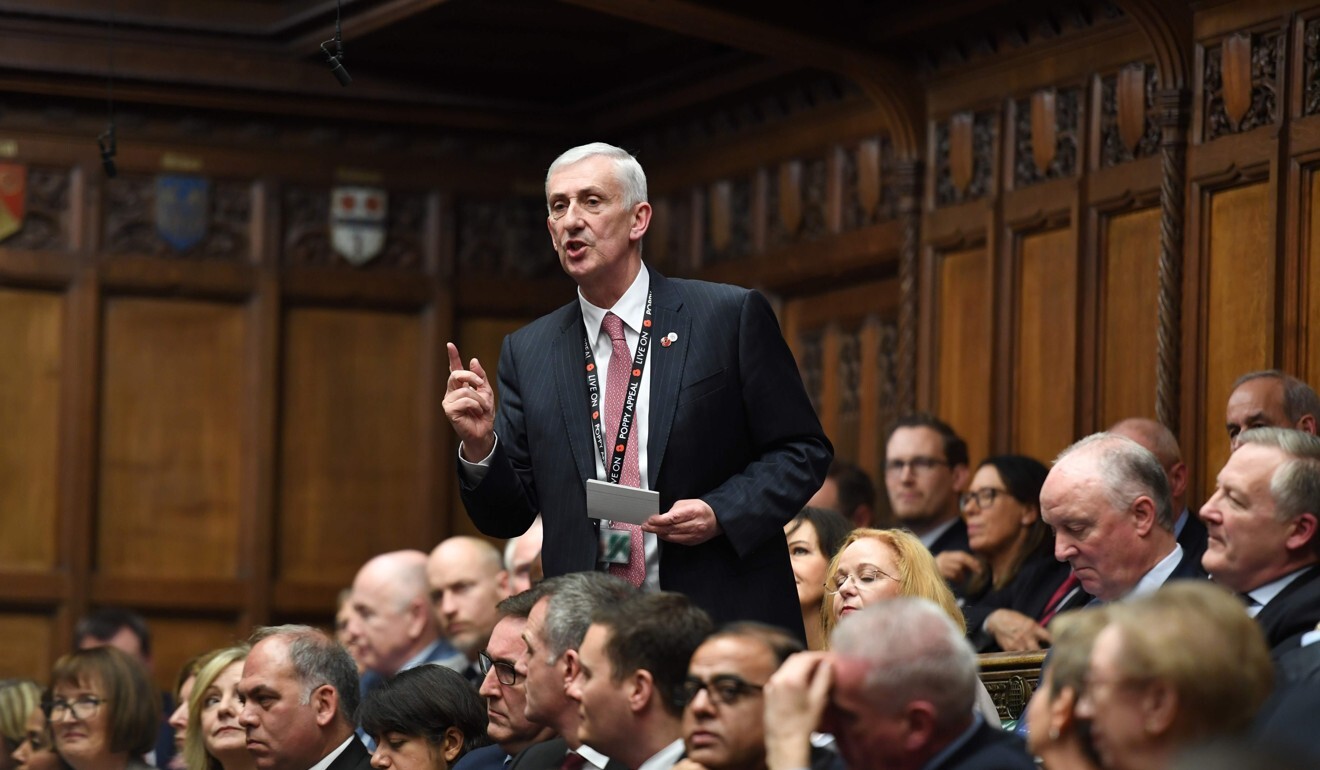
Chinese ambassador to Britain barred from parliament over sanctions on lawmakers
- Zheng Zeguang had been expected to speak at the summer reception for the all-party parliamentary group on China on Wednesday
- Speaker of the House of Commons Lindsay Hoyle and Speaker of the House of Lords John McFall agreed Zheng could not enter until the sanctions were lifted
China’s ambassador to Britain Zheng Zeguang was barred from the country’s parliament in Westminster over Chinese sanctions on British lawmakers.
Zheng had been expected to speak at the summer reception for the all-party parliamentary group on China on Wednesday at the Terrace Pavilion of the House of Commons.
But the event was cancelled after Speaker of the House of Commons Lindsay Hoyle and Speaker of the House of Lords John McFall agreed Zheng could not enter until the sanctions were lifted.
“If those sanctions were lifted, then of course this would not be an issue. I am not saying the meeting cannot go ahead – I am just saying it cannot take place here while those sanctions remain in place,” Hoyle said.

“I regularly hold meetings with ambassadors from across the world to establish enduring ties between countries and parliamentarians. But I do not feel it’s appropriate for the ambassador for China to meet on the Commons estate and in our place of work when his country has imposed sanctions against some of our members,” he added.
The list including four members of parliament, Iain Duncan Smith, Tom Tugendhat, Neil O’Brien, Tim Loughton and former transport minister Nusrat Ghani, and two members of the House of Lords, Helena Kennedy and David Alton.
Coronavirus: UK to offer vaccinations to children over 12
A spokesperson for the Chinese embassy in London said it “would never tolerate any attempt at harming China’s core interests”.
“The despicable and cowardly action of certain individuals of the UK parliament to obstruct normal exchanges and cooperation between China and the UK for personal political gains is against the wishes and harmful to the interests of the peoples of both countries,” the statement said.
In response to the barring of the Chinese ambassador from the House of Commons, Conservative MP Tugendhat said: “Parliament welcomes all those who come as friends. Sadly the Chinese ambassador represents a regime that has tried to silence our democracy and bully those freely elected by the British people. The speaker defends the liberties of all members of parliament to speak freely and that means making clear that some are not welcome here.”

02:46
UK parliament declares Uygurs suffering ‘genocide’ in China’s Xinjiang
Alistair Carmichael, a Liberal Democrat MP and member of the Inter-Parliamentary Alliance on China, a pan-national group that advocates a tough line on China, said: “I generally prefer engagement to isolation but when the Chinese government is sanctioning MPs for speaking up for human rights then it is important for the UK parliament to send the strongest possible signal that this is unacceptable. I am pleased that Speaker Hoyle has sent the clearest possible signal.”
The move marks the latest bump in the road for China’s relationship with Britain, with pressure mounting on the government to take a tougher line on Beijing on human rights and alleged economic foul play.
It unfolded a day after the conclusion of the second set of hearings at the Uygur Tribunal.
China has rejected the tribunal, with foreign ministry spokesman Zhao Lijian dismissing it as a “kangaroo court” and its organisers as “clowns”.

